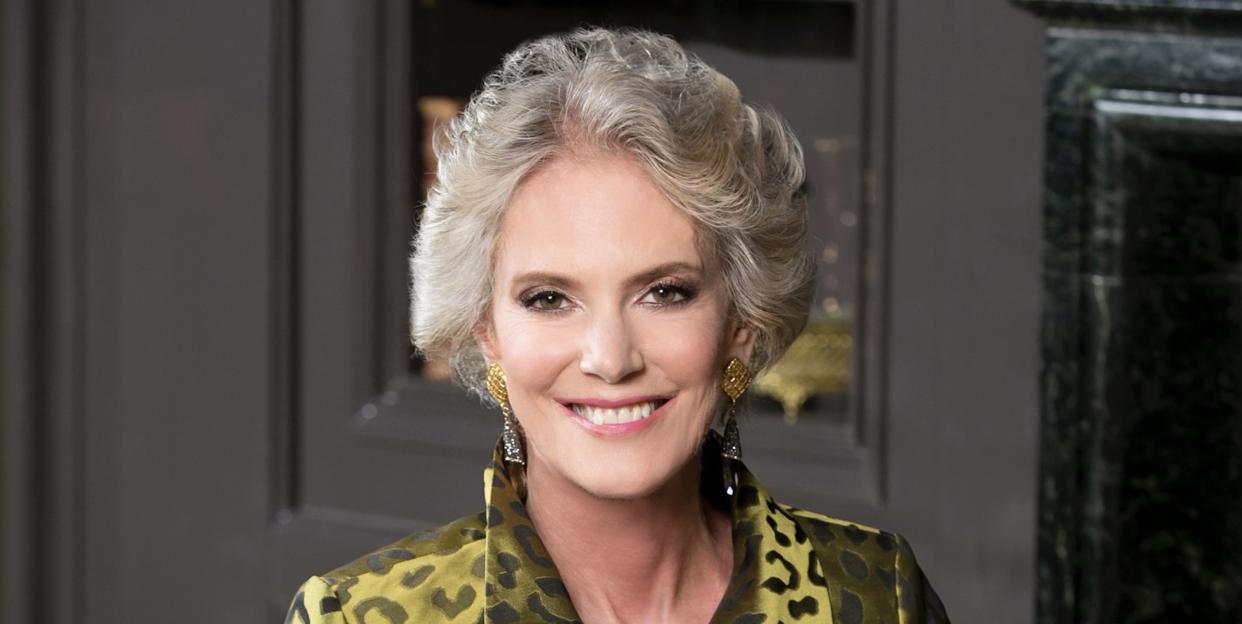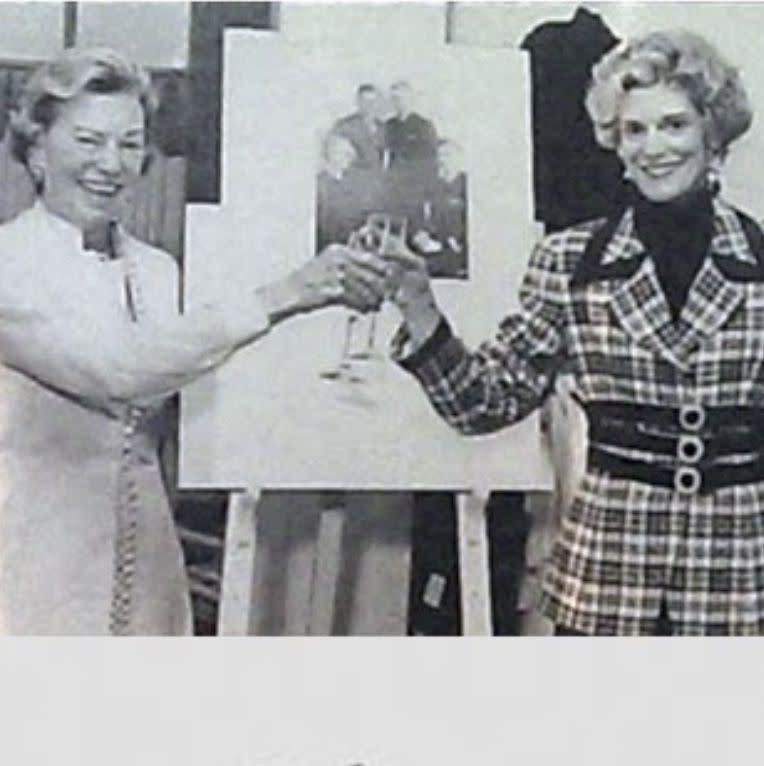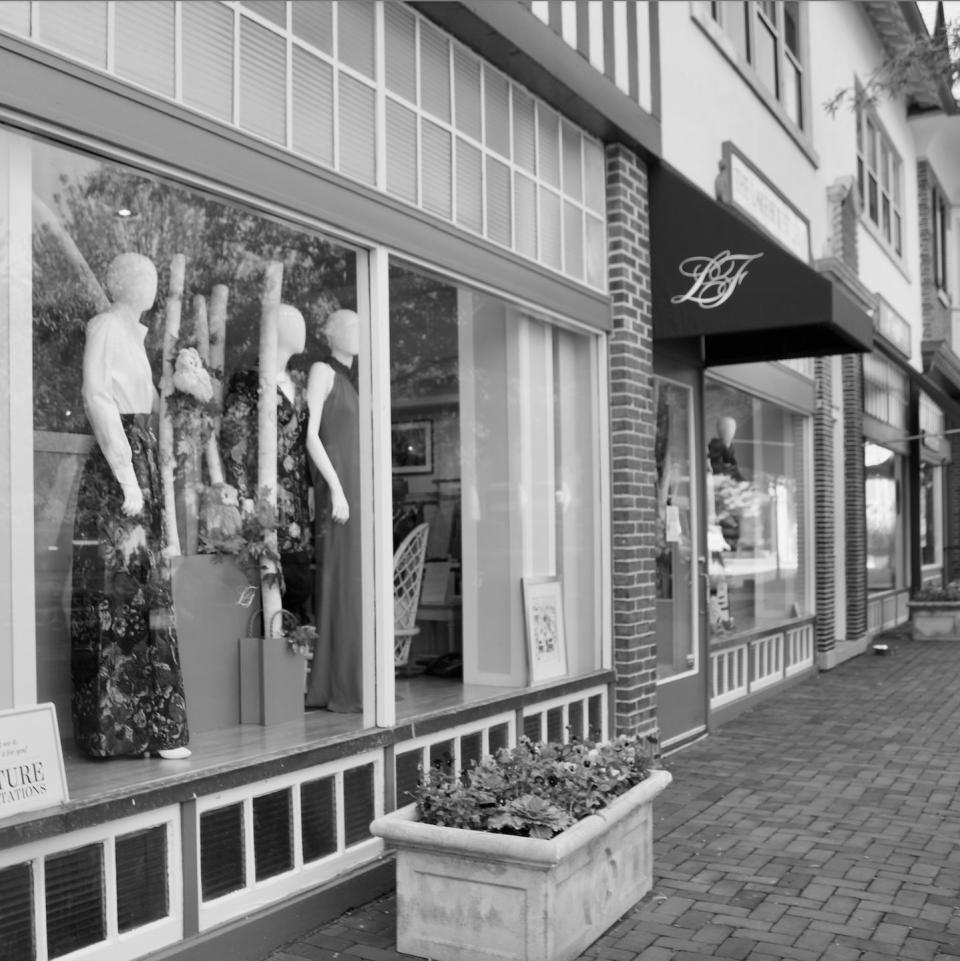How the Owner of an Upscale Family Shop Uplifts the Entire City of Chicago

Ellen Stirling, the 73-year-old CEO and owner of The Lake Forest Shop, a local fashion institution in the Chicago area that’s celebrating its 100th anniversary this year, always planned to use her ample advantages to uplift her beloved city of Chicago.
Her first major foray into philanthropy and improving the lives of Chicagoans started in 1972 after she graduated from Wheaton College in Norton, Mass. with a B.A. in art history. A friend suggested she work with the Rehabilitation Institute of Chicago (now the Shirley Ryan AbilityLab) and its legendary founder, Henry Betts, M.D., a pioneer in the field of rehabilitative medicine and passionate ally of and advocate for Americans with disabilities," which she agreed would be a good use of her time and influence.
The daughter of prominent power couple, Stirling had grown up in old-money affluence in a long line of storied philanthropists who championed various local causes related to improving the lives of children, making higher education more accessible, and funding numerous nonprofits throughout the neighborhood as far back as the late 19th century. Helping advance the greater good, especially in her native city, was the longstanding ethos and expectation of her ancestors. Working with the institute was aligned with Stirling's values, and “it turned out to be one of the most incredible experiences of my life,” she tells Oprah Daily.
Betts wanted to organize a conference that focused on people with disabilities, including wheelchair accessibility (or lack thereof), and he asked Stirling to chair. “I didn’t know what I was getting into,” she says, but through the assembly of key speakers (wheelchair users, activists, attorneys, medical professionals) who shared their personal stories and struggles and research on the topic, Stirling would become acutely aware of the gross injustices wheelchair users face daily due to insensitive engineering designs that fail to consider their needs. At the time, subway stations didn’t have elevators to help wheelchair users reach their destinations; buses didn’t have lifts and would blow past people in wheelchairs waiting at stops; sidewalks didn’t have ramps, nor did buildings. “Think about being in a wheelchair and not being able to cross the street because of the sidewalk,” she says.

To ensure the conference would be accessible to people who use wheelchairs—and to drive home the urgency of the task at hand—Betts and Stirling invited the then-mayor of Chicago, Richard J. Daley, into the men’s bathroom at the venue where the talk would be held. “‘We’re going to show you exactly what needs to happen in here,’” Stirling remembers saying, as she and Betts demonstrated with a tape measure how wide a wheelchair is and how much space would be needed to maneuver it. “After we did that, I said to the mayor, ‘Don’t you think this is a really good reason to make these changes to these bathrooms so we can have the conference here and we can get a huge audience?’ And he said, ‘Yes.’”
That building, then called the American Furniture Mart, has been remodeled, repurposed and renamed 680 Lake Shore Drive, but it’s the first building in Chicago to make wheelchair-accessible bathrooms, and it maintains its original ramp into the building. “I still go back, and I go up that ramp every time I’m in there," she says.
Access Chicago, a nonprofit founded by Betts, Stirling and architect and accessibility advocate Jack Catlin–Sterling describes Catlin as "the dynamic leader"–was born of that conference in 1972, 50 years ago this year—and 18 years before the passage of the Americans with Disabilities Act, prohibiting discrimination against people with disabilities in all areas of public life, a landmark piece of legislation that ensures that people with disabilities get to enjoy the same opportunities as everyone else. “It absolutely made me much more sensitive to the world, and particularly for people with disabilities. Pioneers like Dr. Betts, Access Chicago, and countless determined accessibility advocates are true heroes who helped make Chicago one of the country’s most accessible cities,” she says.

From that seminal experience, Stirling turned her attention to the arts and literacy by helping create the Auxiliary Board of the Art Institute of Chicago in 1973, which now includes approximately 60 members and has been called “the oldest and most-recognized charitable board of its kind in the nation.” It helps facilitate museum education, lecture series, outreach programs, and exhibitions. “Each year, we would buy a piece or two from a local artist and donate it to the museum’s collection and sponsor local artists. It was just really amazing,” she remembers.
Stirling’s philanthropy has increased over the years. With a business acumen that developed over three decades, Stirling identified the need for a bank in Lake Forest and decided with a group of friends to open one in 1991. Today, the Lake Forest Bank & Trust is part of the Wintrust Financial family of banks, which encompasses over 170 locations throughout Chicago and southern Wisconsin, 5000 employees and $50 billion in assets, allowing it to supply a steady stream of funds to local charities and nonprofits, including Northwestern Memorial Hospital, Northwestern Lake Forest Hospital, and Lurie Children’s Hospital of Chicago. “Through the bank, we’ve been able to give back to the community,” she says. Just this year, the Lake Forest Bank & Trust gave a million dollars to the Northwestern Lake Forest Hospital, which opened a state-of-the-art new building in Lake Forest in 2018.
Her desire to help fellow Chicagoans begins even closer to home, though—right inside The Lake Forest Shop, the 100-year-old legacy boutique she saved from bankruptcy back in 1986 through shrewd business decisions. In October, the shop holds a monthlong charity drive called Shop Your Cause that funds local nonprofits that champion education, healthcare, community centers, and sustainability efforts. In 2021 alone, the store gave funding to Boys & Girls Club of Lake County, Elawa Farm Foundation, Gorton Community Center, Citadel Theatre, Lake Forest Open Lands, Mothers Trust Foundation, and Stirling Hall, the City of Lake Forest’s arts and activities center. “These wonderful and artistic nonprofits have really become the soul of our town, so we tell our local communities, ‘Hey, you need to support them.’”
“It’s part of me to try to make the world a better place,” she says.
You Might Also Like

